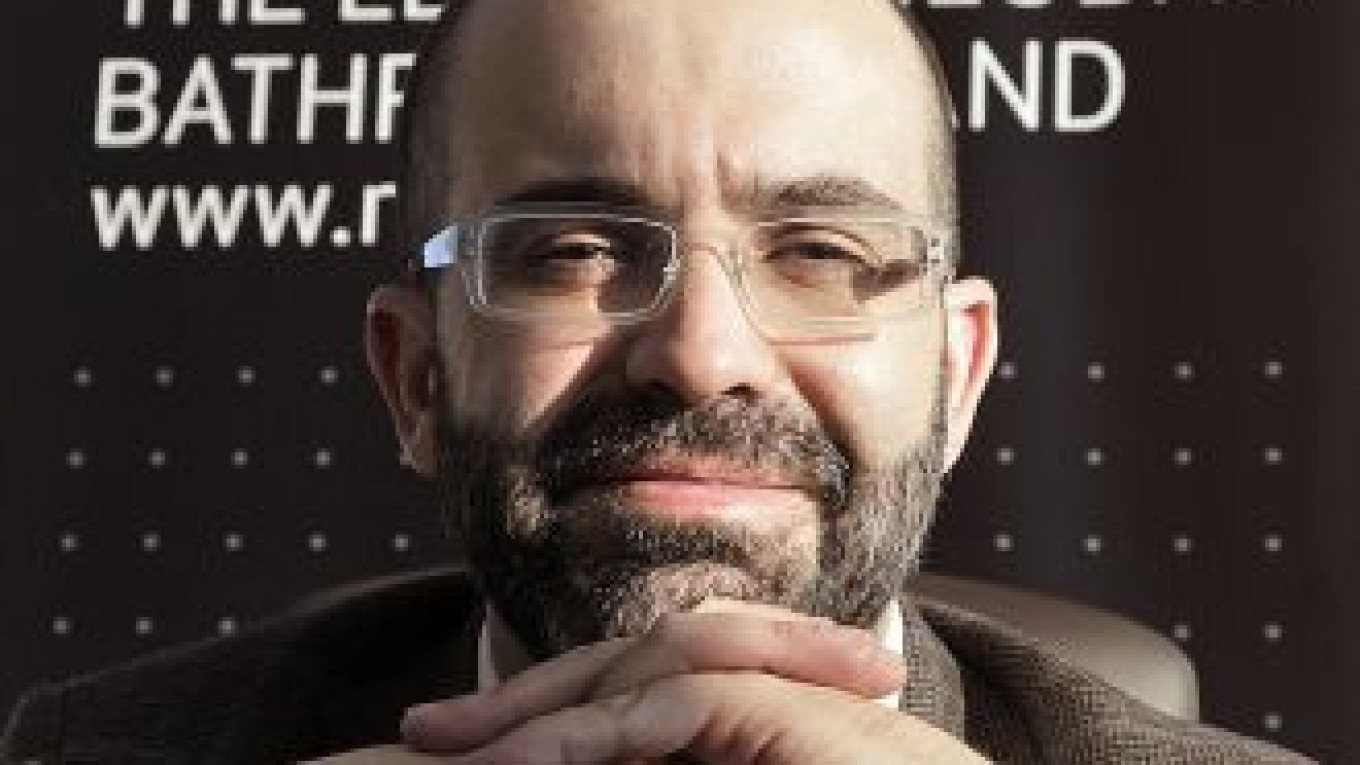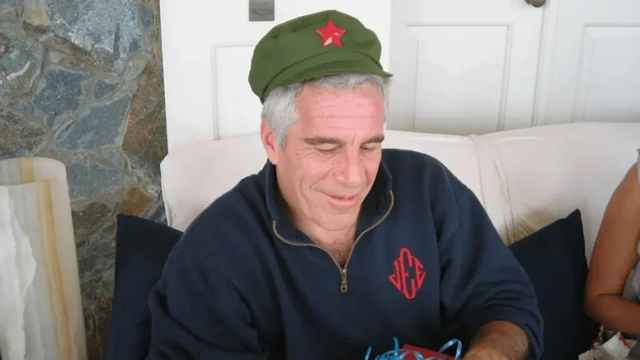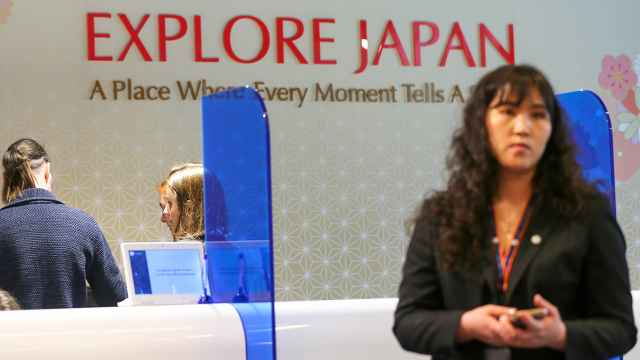Antonio Linares was at wits' end. He had built Spanish giant Roca's first factory in Russia from the ground up in three years. But he still needed one last signature from a government inspectorate to open the facility in the Leningrad region. And he just couldn't get it.
In desperation, he went to the inspectorate's main office in St. Petersburg, where he met with its director and the inspector who wouldn't sign off on the paperwork. The talks dragged on all morning and into the afternoon on that day in September 2006. Finally, the obstinate inspector declared that he would mail a letter with a list of his concerns.
"No, we have the factory ready," Linares said. "Let us know right now. I will help you. My secretary will write the letter for you."
"No," the inspector replied. "I don't have time to do this right now. I have work to do."
Education
1999 — Universitat Politècnica de Catalunya (Spain), masters in business administration and management construction
1995 — Universitat Politècnica de Catalunya (Spain), degree in civil engineering, specializing in structures and bridges
Work Experience
1995-98 — Polytechnic of Engineering and Architecture (Spain), architect/consultant
1998-2003 — Comsa (Spain), senior project manager, construction manager and regional director
2003-Present — Roca Group (Russia), including senior investment analyst (2003-07); business development and marketing (2004-07); managing director, Roca Russia (since 2007)
Favorite book: “Ada or Ardor” (1969) by Vladimir Nabokov
Now reading: “L’homme a l’envers” (Seeking Whom He May Devour) (2006) by Fred Vargas; “Ponedelnik Nachinayetsya v Subbotu” (Monday Begins on Saturday) (1964) by Boris and Arkady Strugatsky
Movie pick: “Barry Lyndon” (1975) directed by Stanley Kubrick
Favorite Moscow restaurant: Varvary, 8a Strastnoi Bulvar
Best weekend Getaway: Barcelona
Suddenly the room began to spin. Linares collapsed. People crowded around him anxiously. Linares heard worried voices say he was suffering a heart attack. The director of the inspectorate, who carried nitroglycerin for his own high blood pressure, pulled out a bottle and pressed a pill under Linares' tongue. The director also grabbed the disputed paperwork and signed it on the spot.
"Finally we got that signature. I always joke that it was to avoid headlines in newspapers about a Spanish businessman dying in the office of a supervisory authority," Linares said, chuckling, in an interview.
Shortly afterward, the Roca facility started production of washbasins and toilet bowls as part of the family-owned bathroom fixture company's first major investment in Russia, and Linares went on to open six more factories — without falling ill. He later learned that he had not suffered heart problems but a panic attack, the result of tense negotiations combined with skipping breakfast and lunch.
Linares remains unsure why the inspector balked, but he believes it was linked to pride. Someone at Roca, he said, no doubt failed to show respect to the inspector during the construction process. "Probably because of his ego he wanted to show his power and make us take some of the medicine that he thought he had been forced to swallow," he said.
These days, Linares advises his team to practice respect and humility and to leave their egos in their "pocket or, if possible, in the car."
He also learned another lesson from the experience at the first factory: Always eat before beginning important talks.
Linares, 41, who oversees 2,500 employees as managing director of Roca Russia, sat down with The Moscow Times at a downtown restaurant to explain how humility and good relations with key figures have allowed him to build a flourishing business from scratch in eight years and how a company's own mistakes are usually to blame for corruption problems.
This interview has been edited for length and clarity.
Q: Why did you come to Russia — and why have you stayed?
A: I was working in construction in Spain when Roca asked if I wanted to join the world of international business. I said, "Yes," and we started from scratch.
My first task was to hire an interpreter, a person who could really help me deliver my message. I had no knowledge of the Russian language when I arrived in 2003, and I interviewed 10 people. I remember it well. I didn't interview them on their careers or the way that they spoke English. I just took each one around with me for a full day of work. The 10th candidate convinced me because, first of all, she doubted herself. She wasn't sure that she could interpret for me, even though her English was great. But I saw that she understood not only what was said but also what was meant. She would say, "Antonio, I believe that here he might have meant this or he might have meant that."
After two years, I stopped using an interpreter, and now I speak Russian fluently. This is important for foreigners: Learn the language. If you respect a place, you will learn the language.
I am still in Russia because our company is still growing.
Q: What is your secret to successfully managing people and business in Russia?
A: First, listen and understand the context. Then respect the context.
If you want to come to Russia and be successful, you always have to keep three things in mind: your needs, your values and your ego.
With needs, you must know what you want to achieve and the technical requirements for the business that you intend to develop. Focus on that. On values, know what lines you're not going to cross.
Most important, don't put your ego on the table. For example, we once had a never-ending discussion at one of our factories about where to put a window in a big wall. Some engineers said, "Why not here? The window has been placed here in every other factory in the world." Other engineers said, "But this is Russia, and the regulations say there has to be this much distance from here to here, so the window cannot go here. It has to be there and have these characteristics." After some time, it got to the point where we had to remind the people around the table, "Gentlemen, why do we need the window so badly? And why did we want it here so badly?" The debate was the result of egos on the table. This is what I always suggest: Leave your ego in your pocket or, if possible, in the car. Don't carry it so close to your heart.
The ego also enters into the realm of corruption. You have to be able to distinguish needs and values from your ego because at some point someone will say to you, "Do you want it faster?" or "I know someone who knows someone who can help." When a person tells me that he knows someone, I reply, "Congratulations!" Usually I also know that someone personally because I try to meet with the governors of regions, the presidents of republics, and the people in the federal administration who work in the various supervisory agencies connected with my business. I try to meet with them to let them know about our plans. Also I don't want anyone to try to capitalize on their relationships with those people and present that as an asset.
This is why you should spend a lot of energy making sure that you do not sell your soul to any intermediary or adventurist who comes to you saying he can give you the solution to all your problems. Sometimes he will bring solutions, but he can also create problems that did not exist before and then offer solutions to the newly created problems.
This triangle of needs, values and ego is a little instrument that I give those who work with us, and it has allowed us to create a wonderful business story in Russia.
Q: How do you deal with corruption?
A: By saying no. It took three years to build our first factory in Russia, and it was difficult. Simply the time it takes to get all the signatures, licenses and permits for every little step can be exasperating. But if you're impatient, do not show it because it will cost you money.
A few times we have received "special offers," which is what I call corruption. When that happens, we make an analysis to help us understand what we did wrong. Most of the time corruption comes from a mistake. Perhaps you have not followed a law or someone has said in your name that you need something finished faster than the law allows. If you say, "I need this in 20 days" and the law says 60 days, then someone will come and say to you, "OK, we can get it for you in 20 days, but then you should do this and this and that." The simple thing you have to do then is say, "Sorry, the law says 60 days. We have to be patient."
We had a situation in one of our factories that was open and producing but had no gas. The gas was needed for heating, and we were really scared because winter was coming and without gas we would have to close. Then someone came and said, "You can get the gas, but you should do this and that." I said to my team, "Listen, the first thing I want is a review of why we don't have gas. What documents are we missing?"
We carried out a review and discovered that two documents were missing. It took one week for the analysis and the preparation of the missing documents. Exactly two weeks after we delivered the documents, the gas was turned on. So it took us a total of three weeks to get the gas instead of working with this person. We got the gas turned on through an analysis of what internal weakness we had that the person was trying to exploit for profit.
If someone makes a "special offer" and you say, "Hey, stop or I'm going to bring in the ambassador or the Association of European Businesses or the governor," the pressure usually disappears unless the person feels confident enough to later say to the ambassador and governor, "Gentlemen, these people have made mistakes and they wanted us to do something about it." So, again, corruption usually comes from your own mistakes.
Q: What advice would you offer a foreigner who wants to invest or expand in Russia?
A: The first thing is not to look at your watch. Don't say, "My contract is for three years and now I've been here for three years and 363 days," because if you act like that, it's not going to work for you or your family.
Second, make sure that your family is happy because most stories of disappointment come from foreigners whose families aren't happy. If your family is happy, they can provide great support.
It's also important to listen to and respect people. Many people arrive with their issues and their understanding about how things should be and leave without learning anything about Russia. People arrive and start complaining that Russia is not, let's say, Germany. I always respond, "Gentlemen, if you wanted to go into business in Germany, then go to Germany. But if you came to Russia, don't expect it to be Germany."
If something doesn't meet your expectations, the first thing to do is examine yourself. Russia is Russia. It was here before you arrived, and other people are enjoying success here. The ultimate question is: "With all the pluses and minuses, does it fit into your triangle of needs, values and ego?" If you see that you will have to violate or break any of the three sides of the triangle, then don't come. If you think that you can keep your ego under control and fill all your needs and expand your values, then come.
Q: Could you describe a problem you have resolved in Russia and what you learned from it?
A: Perhaps what has taken most of my energy and been my biggest disappointments are related to people — people who you thought you valued rightly and understood your message and the way that you wanted to do business but betrayed your confidence and all your expectations. This has been my greatest problem.
What have I learned? I have learned that you need to trust people but at the same time set up instruments to make the company function. That might sound contradictory, but it's not. I always say, "I trust all of you, but the procedures have to be here and complied with precisely to make sure that this trust remains." In the beginning, maybe I relied more on personal trust than formalizing matters, but now I formalize matters more. I do this to protect people and myself from failures.
I've also learned that there are three things that a company must focus on to be successful here: recruitment, procedures and consequences. Good recruitment is essential. You need to know whom you are hiring and understand that they share your values. You also need a strong body of corporate procedures so employees understand how they should perform and work efficiently. If the procedures fail, there is a third side to this triangle: people should understand the consequences. The consequences are that if people in managerial positions disappoint the trust that has been placed in them, they will not play the game anymore. If they are dishonest, I will tell them that they will not play the game anymore, not with us, not with any other respectable, multinational company that I know in this country.
I always say mistakes are welcome. We all make mistakes. I have built my career on mistakes and on the basis of trying not to repeat them. We can make new ones but not repeat the old ones. But dishonesty is the only thing that I cannot stand.
At the same time, I have to say that some of the nicest experiences that I have had in Russia are with people. We have people who started out as accountants and analysts and now are the general directors of some of our businesses. This is confirmation for me that we have developed them well.
Q: Who or what inspires you?
A: We have 12 factories in China, six in India, five in Brazil, and seven in Russia, among other places. We are No. 1 in many countries around the world. What inspires me is the people who create this value, the people who bring our team up to new levels of development and knowledge. For me, my most important work isn't to take from this country but to give. When you give, a country will return to you what it has received.
A Message from The Moscow Times:
Dear readers,
We are facing unprecedented challenges. Russia's Prosecutor General's Office has designated The Moscow Times as an "undesirable" organization, criminalizing our work and putting our staff at risk of prosecution. This follows our earlier unjust labeling as a "foreign agent."
These actions are direct attempts to silence independent journalism in Russia. The authorities claim our work "discredits the decisions of the Russian leadership." We see things differently: we strive to provide accurate, unbiased reporting on Russia.
We, the journalists of The Moscow Times, refuse to be silenced. But to continue our work, we need your help.
Your support, no matter how small, makes a world of difference. If you can, please support us monthly starting from just $2. It's quick to set up, and every contribution makes a significant impact.
By supporting The Moscow Times, you're defending open, independent journalism in the face of repression. Thank you for standing with us.
Remind me later.






